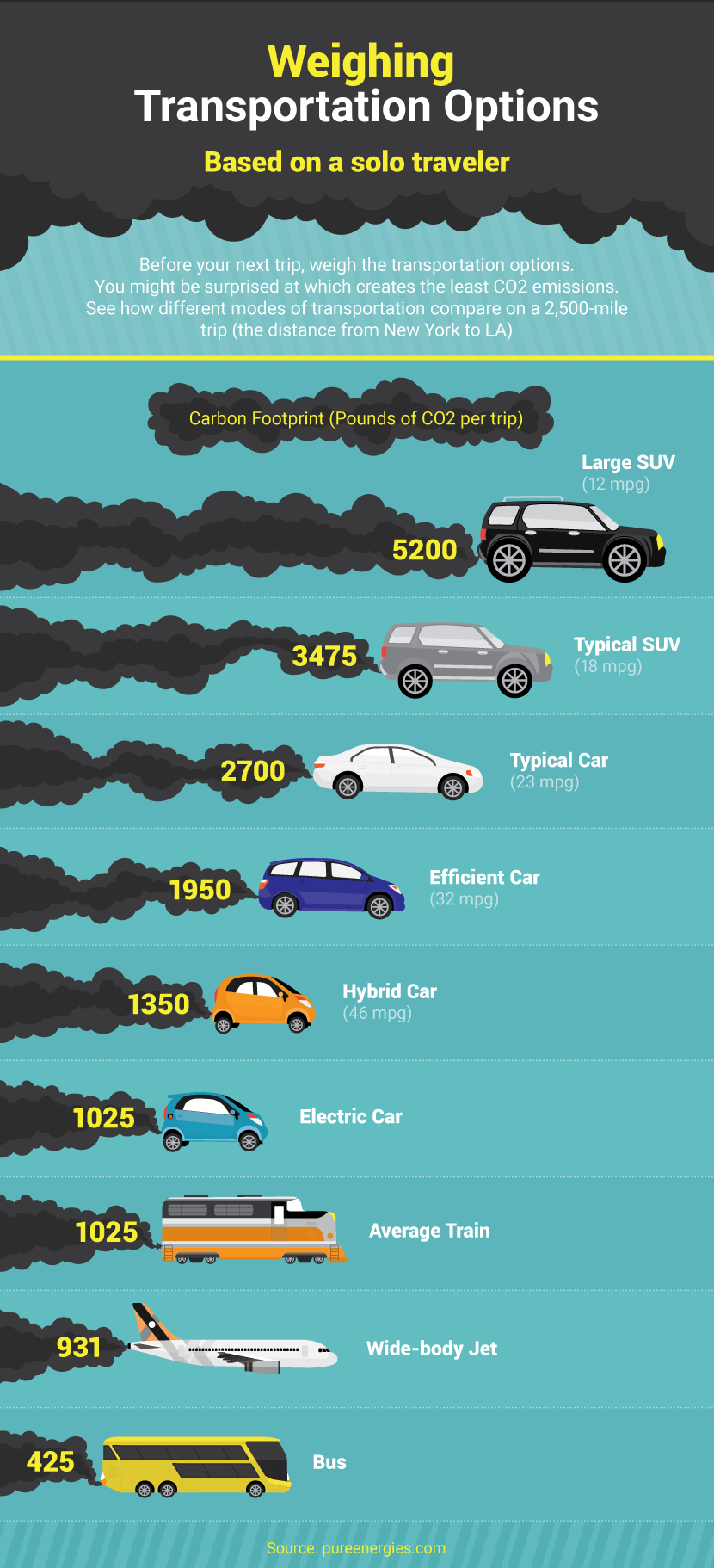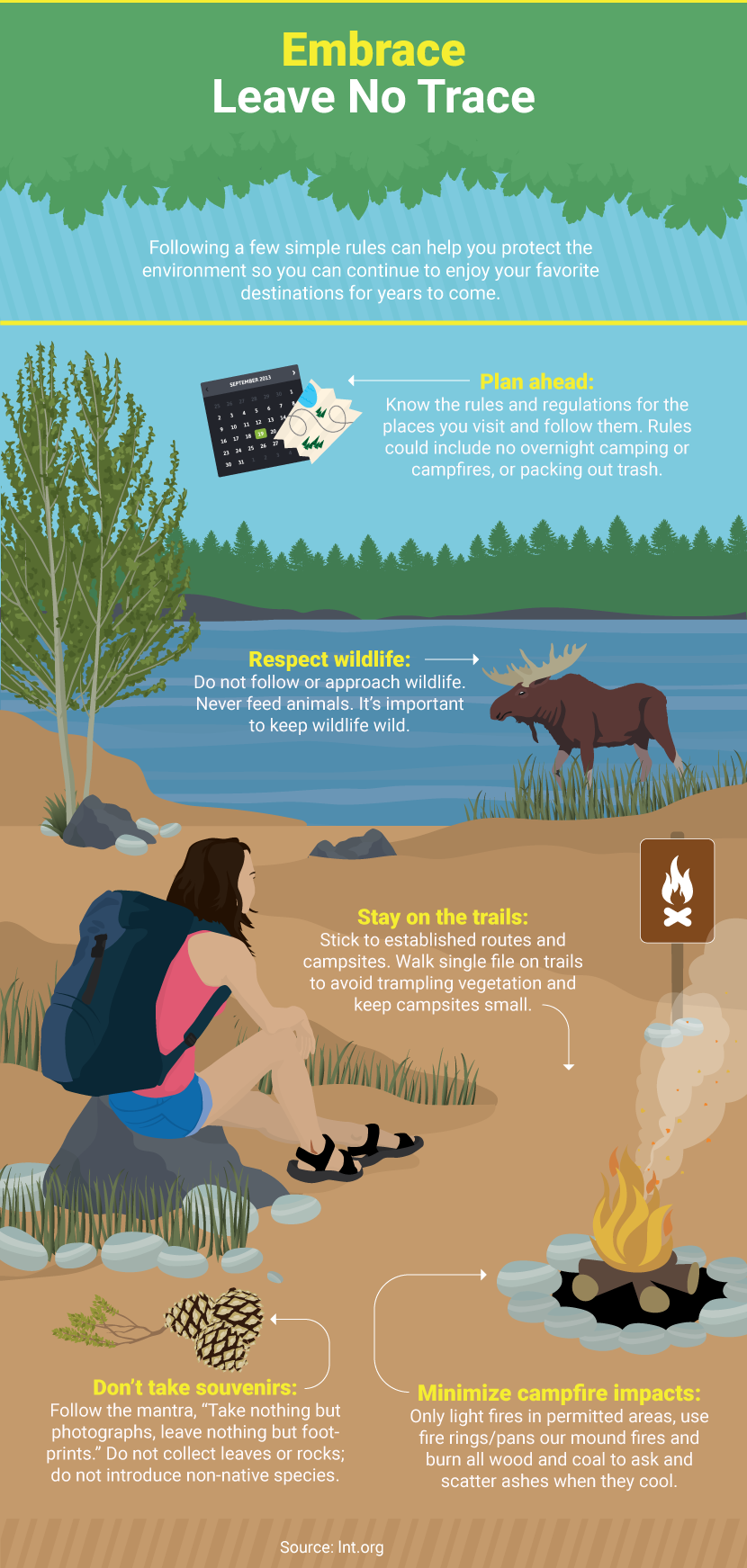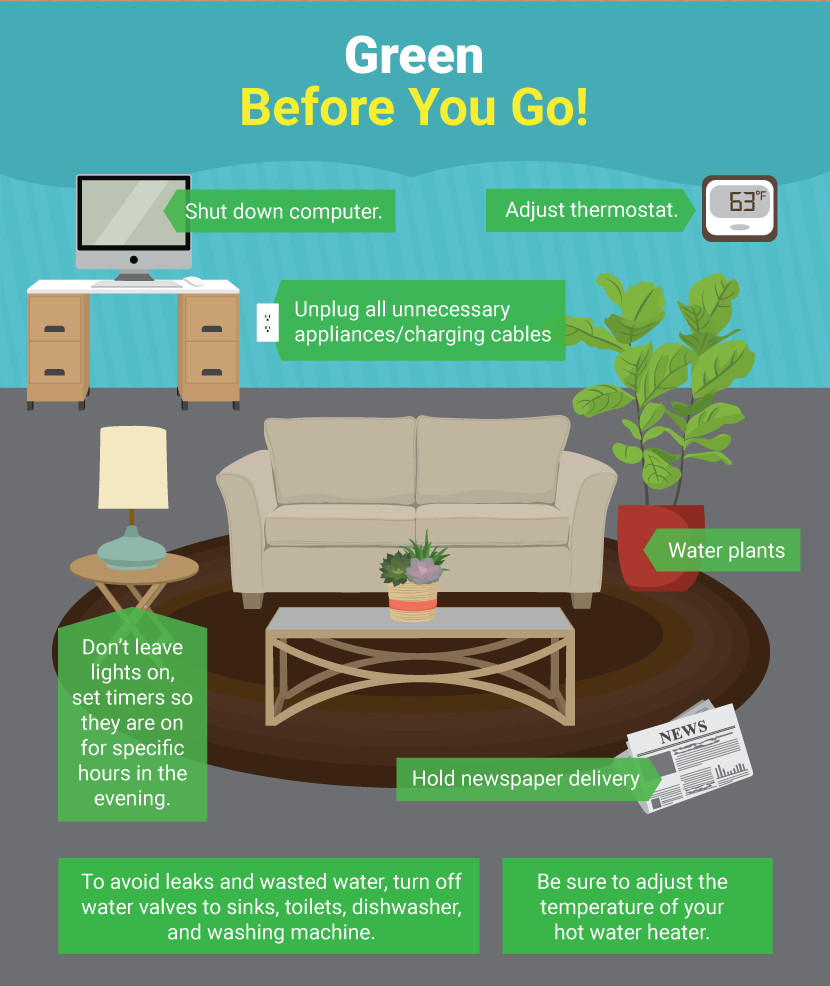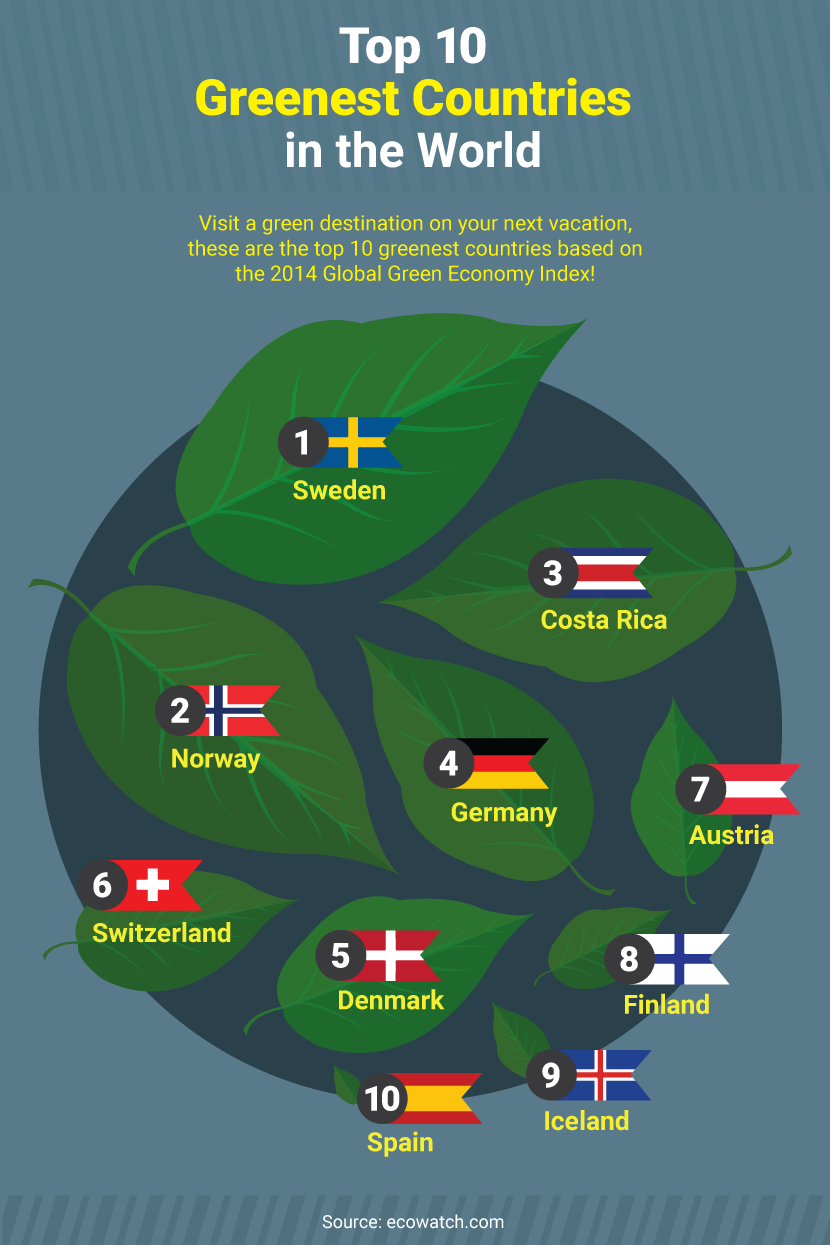Green Your Travel Plans:
Strategies to Make Your Next Vacation More Eco-Friendly
Planning a vacation? Heading out of town for the holidays? Sneaking in a romantic getaway? You’re not alone.
Every aspect of your vacation, from transportation and accommodations to meals and activities, has an impact on the planet.
With a little advance planning, it’s possible to make choices to minimize your eco impact.
Here are some tips to help you plan a great green vacation:
Planes, Trains, or Automobiles?
Transportation choices often depend on the destination. You can’t drive to Dubai, take a train to Torino, or carpool to Copenhagen.
But for domestic travel – or transportation within each destination – it can be difficult to know whether planes, trains, or automobiles have the lowest eco impact.
Riding a bike is the greenest option. If pedal power isn’t an option, air travel might be the most eco-friendly choice.
Although the giant diesel engines are not fuel efficient, transporting many dozens of passengers in a single vehicle has less of an environmental impact than each of those passengers driving their own cars.
Trains are a green option for the same reason. And it should come as no surprise that driving an electric car is more efficient than piloting a gas-powered vehicle, especially if that’s an SUV.
Air travel is not known for being green but when it comes to CO2 emissions, it beats out the average train or hybrid vehicle.
To minimize your carbon footprint when you’re in the friendly skies, opt for non-stop flights.
Takeoff and landing add a significant amount of emissions to a trip.

Choose Green Lodging
The eco impact of operating a hotel adds up. The building is heated and cooled, linens are laundered, rooms are cleaned. Look for hotels that operate with the environment in mind.
Most properties, for example, offer recycling and encourage linen reuse to cut down on the amount of water and detergent used in the laundry.
Some hotels take their commitment a step further, installing solar panels and serving locally grown foods.
Check the Green Hotels Association for a list of hotels in every state that have implemented programs to conserve resources and reduce waste.
Camping can be a green option, too, as long as you pitch your tent in an approved campsite and follow all the posted rules,
including extinguishing campfires and packing out waste. Keep pets leashed and stay on marked trails to avoid disturbing wildlife.

Pack Light
Excess weight in the trunk (or cargo hold) will decrease the gas mileage of a car or airplane.
Filling the trunk with 100 pounds of gear – beach chairs, coolers, suitcases – decreases fuel efficiency by two percent.
It might not sound like much, but if every car headed to the beach in the summer or grandma’s house at Thanksgiving burns more fuel because of added weight in the trunk, the impact is significant.
Pack the essentials, leave the extras at home.
Choose Eco Activities
On vacation, consider the impact of the activities you choose.
At the beach, kayaking and windsurfing have far less eco impact than riding a jet ski. In the mountains, snowmobiling puts more strain on the environment than skiing.
Ask tour operators about their environmental policies.
Boats should steer clear of sensitive coral reefs, cultural tours should prohibit travelers from touching (or taking) artifacts, and hike leaders should keep groups on marked trails, for example.

Eat Green
Vacation is not the time to stick to a rigid diet, right?
You can eat all of your favorite foods – and sample some local favorites – with the environment in mind.
When hunger strikes, opt for local foods like pineapple in Hawaii, oranges in Florida, and Dungeness crab on the Oregon coast.
Eating local reduces the number of miles foods travel from farm (or ocean) to plate.
Organic foods are another “green” option because they are grown without pesticides and synthetic fertilizers.
Restaurants that serve organic foods from local farms are proud to offer farm-to-table fare and mention their commitment to partnering with local farms on their websites and menus.
If you’re curious about where a restaurant sources ingredients, ask.
The Green Restaurant Association lists certified green restaurants in several U.S. cities; look up your vacation destination for local, organic options.

Slather on Biodegradable Sunscreen
Sunscreen is a vacation essential but the same ingredients that help protect against UV exposure might harm marine life.
Scientists have found a link between dying coral reefs and the estimated 4,000 to 6,000 tons of sunscreen that wash off swimmers every year.
Biodegradable sunscreens are made with ingredients that break down in seawater and won’t harm marine life.
Check the label to ensure that your sunscreen prevents sunburn and protects marine life.
You don’t have to stay home to save the environment. With advance planning and a commitment to making green choices,
it’s possible to travel to your favorite destinations with minimal eco impact. It’s time to think about how you can green your next vacation.
Embed the article on your site

